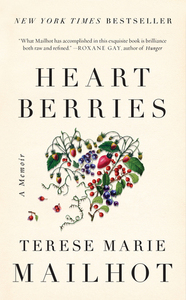Take a photo of a barcode or cover
A beautiful and raw memoir. Mailhot describes her life and experiences as a First Nations women so vividly. I felt that the memoir was a little too short for me to connect with her story, but I’m very happy to have read it.
I didn’t know this book would make me feel the way it did under 150 pages. The writing was beautiful and the imagery was stunning. Some parts struck me so intensely it felt like a physical reaction. Would highly recommend
I reserve the right to adjust the number of stars I give this memoir as I think more about it and it settles into me. I should also mention that I listened to the audio version and perhaps that impacted my ability to understand the book.
I wanted to like this book a lot, but the structure and organization were off-putting to me. I didn’t like how non-linear it was because my confusion as to what was happening when and who certain characters were interrupted my appreciation of Mailhot’s painful dive and resurgence. I also did not like that most (all?) of it was a letter to her lover, whom I wanted her to be strong enough to get over and to stop allowing him to use her.
I’m going to sit with my dislike of the structure and organization, and I’m going to read other reviews, and I’m going to ask myself if this discomfort and lack of appreciation are really my looking firmly through my white lens and having trouble finding value in a native woman’s/this native woman’s manner of self-expression.
There were also a lot of things I liked: Mailhot’s impressively honest accounting of the way she hurt others; the powerful way she conveyed to the reader how heartbreaking it was to lose her older son and its effect on her self-esteem and mothering; the uncomfortable fascination with her own annihilation (which, thankfully, she got over); her moving descriptions of who her mother was and the complex relationship they had. And so much more.
I wanted to like this book a lot, but the structure and organization were off-putting to me. I didn’t like how non-linear it was because my confusion as to what was happening when and who certain characters were interrupted my appreciation of Mailhot’s painful dive and resurgence. I also did not like that most (all?) of it was a letter to her lover, whom I wanted her to be strong enough to get over and to stop allowing him to use her.
I’m going to sit with my dislike of the structure and organization, and I’m going to read other reviews, and I’m going to ask myself if this discomfort and lack of appreciation are really my looking firmly through my white lens and having trouble finding value in a native woman’s/this native woman’s manner of self-expression.
There were also a lot of things I liked: Mailhot’s impressively honest accounting of the way she hurt others; the powerful way she conveyed to the reader how heartbreaking it was to lose her older son and its effect on her self-esteem and mothering; the uncomfortable fascination with her own annihilation (which, thankfully, she got over); her moving descriptions of who her mother was and the complex relationship they had. And so much more.
emotional
medium-paced
This book got so many great reviews & Emma Watson wanted me to read it so how could I not? Unfortunately I didn’t really get into it. It was a memoir written, in my opinion, in a very stream of consciousness style and so much is inferred or abstract. I understand, now that I have read it all, that she was working through her pain to name the cause. It takes lots of unwrapping of layers to do that. I am sure this is a genius book, I just didn’t connect with the style.
Heart Berries was enlightening, devastating, and inspiring. The expressive language used developed a bodily awareness along with a cognitive understanding. Mailhot showed a raw depiction of her experience as an indigenous woman surrounded by white culture. I learned much and will continue to dwell on many themes presented in this text.
challenging
dark
emotional
reflective
sad
medium-paced
emotional
inspiring
reflective
sad
medium-paced
Emotional and inspiring
As a therapist, there are few things I value and respect more than a person’s insight into their own thoughts, emotions, and actions, and in Mailhot’s memoir she verbalized this insight in such a poetic and powerful way. Adding in Mailhot’s awareness of how her cultural identity plays into her mental health - and impacts her response to her mental health - made this book an easy five stars.





